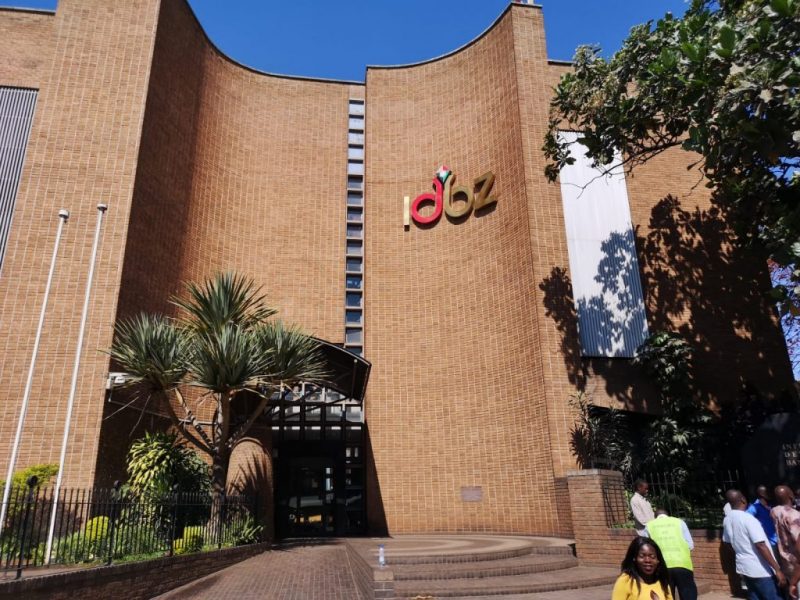Creeping parallel market, a reflection of policy not USD shortage Economy Uncensored with
In June 2024, the Reserve Bank of Zimbabwe (RBZ) declared that it would no longer provide foreign exchange (forex) to companies that already possess nostro balances.
This move, highlighted in a Business Weekly article during that week, raised significant concerns among businesses and financial analysts alike. The policy decision that intended to regulate forex availability, might have far-reaching and potentially adverse effects on the Zimbabwean economy.
The Reserve Bank’s decision aims to manage the country’s forex reserves more stringently. Nostro accounts, which hold foreign currency deposits, are seen by the RBZ as a buffer that companies can utilise in lieu of tapping into the national forex reserves.
However, this approach assumes that corporates’ existing forex balances are adequate to meet their operational needs, an assumption that may not hold true across various sectors.
There are several drawbacks to this restrictive policy, firstly, many businesses in Zimbabwe rely on foreign currency to import raw materials, pay for international services and meet other critical obligations.
However, as predicted, this move is now driving many firms to the parallel market in a desperate bid to cover immediate costs and continue operating. The implications of this policy are profound, and the ripple effects are beginning to surface across the Zimbabwean economy.
At the heart of the RBZ’s decision is the need to manage the country’s forex reserves more stringently. Nostro accounts, which hold foreign currency deposits, are perceived by the RBZ as a buffer that companies can use instead of drawing from the national forex reserves.
The central bank’s approach suggests an underlying assumption that the forex balances held by corporations are sufficient to meet their operational needs. However, this assumption is not universally valid and varies significantly across different sectors.
Many businesses in Zimbabwe rely heavily on foreign currency for a range of critical activities. Importing raw materials, paying for international services and meeting other essential obligations all require access to forex.
The RBZ’s policy, while intended to preserve the country’s limited forex reserves, inadvertently places these businesses in a precarious position. For many, the forex held in nostro accounts is insufficient to cover all operational costs, especially in an environment where inflationary pressures and currency volatility have been rife.
The reality is that businesses cannot afford to wait for their nostro balances to replenish naturally. With the RBZ effectively cutting off a vital lifeline, companies are left with little choice but to seek alternative sources of forex to stay afloat.
This is where the parallel market comes into play. Often seen as a last resort, the parallel market is now becoming a necessity for businesses desperate to secure the forex they need to continue operations.
The consequences of this shift towards the parallel market are multifaceted, as the parallel market operates at a premium, meaning that companies are forced to pay significantly more for the forex they require.
As of today, the official exchange rate is at 13.8076 against the parallel market rate of 23 to the dollar.
This increase in operational costs inevitably gets passed on to consumers, driving up prices across the board and contributing to inflationary pressures in the economy. The very policy intended to regulate forex availability may, therefore, be exacerbating the very economic challenges it sought to mitigate.
Moreover, the parallel market is notoriously volatile and lacks the stability that businesses need for long-term planning. The unpredictability of exchange rates in this market makes it difficult for companies to budget effectively, leading to increased financial uncertainty.
For a country already grappling with economic issues, this added layer of unpredictability is proving detrimental.
There is also the issue of the informalisation of the economy. As more businesses turn to the parallel market, a significant portion of economic activity moves away from the formal banking sector.
This not only undermines the RBZ’s ability to regulate the economy effectively but also reduces the Government’s tax revenue. The parallel market thrives on cash transactions and operates outside the purview of official financial channels, making it difficult for authorities to monitor and control.
The move towards the parallel market is not just a short-term response but could become a more permanent feature of the Zimbabwean economy if the RBZ’s policy remains unchanged as has been seen before in the past 24 months.
Companies that have developed informal networks and channels for accessing forex may find it more convenient to continue using these avenues even if the official policy is eventually relaxed. This could entrench a dual economy where the formal and informal sectors operate in parallel, with the latter growing increasingly dominant.
The reliance on the parallel market could also have implications for foreign investment. Investors are typically wary of markets where the official exchange rate is significantly divorced from the parallel rate. The lack of a stable and transparent forex market could deter potential investors, further limiting the country’s access to much-needed capital.
The RBZ’s decision, while well-intentioned, appears to have overlooked the complex realities of Zimbabwe’s economic landscape. By restricting access to forex for companies with nostro balances, the central bank has inadvertently driven businesses towards the parallel market, where the costs and risks are significantly higher.
Long-term implications of this shift could be far-reaching, affecting everything from inflation and economic stability to foreign investment and government revenue.
In order to mitigate these risks, the RBZ may need to reconsider its approach. A more nuanced policy that takes into account the varying needs of different sectors could help to alleviate some of the pressures currently being faced by businesses.
For instance, companies that rely heavily on imports could be given greater access to forex, while those with more domestic-oriented operations might be encouraged to use their nostro balances.
In conclusion, while the RBZ’s policy is rooted in the need to preserve forex reserves, its implementation has inadvertently pushed businesses into the arms of the parallel market. This move, rather than stabilising the economy, risks deepening the very challenges it seeks to address.
A more flexible and sector-specific approach may be required to ensure that businesses can continue to operate without resorting to the parallel market, thereby safeguarding the broader economic stability of Zimbabwe.
Tapiwanashe Mangwiro is a resident economist with the Business Weekly and writes this in his own capacity. @willoe_tee on twitter and Tapiwanashe Willoe Mangwiro on LinkedIn










